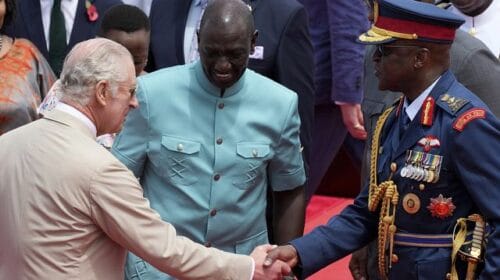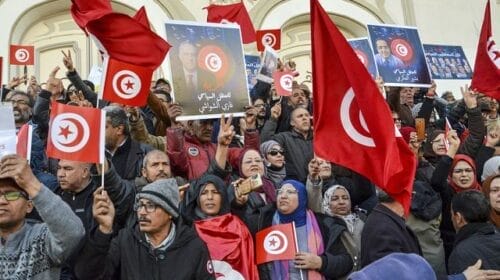Government of Senegal boosts Ebola awareness through SMS campaign
SMS warnings about Ebola and how to prevent it
Text message for Ebola SMS campaign, Senegal, 2014.WHO
As part of a massive public awareness effort, Senegal’s Ministry of Health sent 4 million SMS messages to the general public warning of the dangers of Ebola and how to prevent it. The messages, driven by the WHO-supported “mDiabetes” platform, were targeted at people living in the capital city of Dakar and St-Louis, a heavily populated region in the country.
Through the SMS campaign, launched in partnership with major mobile phone operators in Senegal, people were encouraged to alert health authorities of anyone showing signs of a fever and bleeding by calling a toll-free number. The messages were shared ahead of large-scale public events, including football matches and rallies.
“This SMS campaign was part of a much larger national project in Senegal focused on awareness, prevention and care for people with Ebola,” said Dr Mbayange Ndiaye Niang, a project leader at the Ministry of Health who helped implement the campaign. Other awareness-raising efforts, she said, included radio announcements, flyers and the dissemination of messages on a government-hosted web site such as:
Wash your hands with soap and water regularly.
Avoid all contact with people who are sick with or have died from Ebola.
Do not touch or eat the meat of dead or sick animals (monkey, rat, warthog, porcupine, pork).
Collaboration across disease programmes
Senegal’s SMS Ebola campaign could be rolled out at top speed thanks to an existing platform designed to help people living with diabetes manage their condition.
“mDiabetes” was launched in June 2014 during the month of Ramadan, a period when fasting typically elevates the health risks of diabetes. By registering with mDiabetes, members of Senegal’s diabetic patient association and health professionals could receive free tips, via SMS, on how to avoid complications triggered by fasting and feasting.
“Diabetes is a growing global problem, particularly in the developing world,” said Dr Etienne Krug, WHO Director of Management of Noncommunicable Diseases. “More than 80% of diabetes deaths occur in low- and middle-income countries. Innovative technology platforms like mDiabetes can play a vital role in spreading simple prevention messages to a wide audience such as the importance of a healthy diet and physical exercise.”
When the threat of Ebola loomed in late August, the Ministry of Health in Senegal had a ready-made platform in place to share text messages on a large scale.
“This is an excellent example of collaboration across 2 disease programmes — 1 focused on Ebola, the other on diabetes — which are typically considered incompatible with each other. The common use of the technology platform shows how investment in mobile health is a way to improve overall population health as quickly and efficiently as possible,” said Dr Douglas Bettcher, WHO Director of Prevention of Noncommunicable Diseases (NCDs).
Investment in mobile technology
mDiabetes was launched as part of the “Be Hea@lthy Be mobile” joint global initiative supported by WHO and the International Telecommunication Union. Projects in other countries include a mCessation programme to reduce tobacco smoking in Costa Rica and an mCervical cancer programme in Zambia.
The broader aim of “Be Hea@lthy Be mobile” is to help all governments build mobile technology into their health systems for the prevention and management of noncommunicable diseases: diabetes, cancer, heart disease and lung disease. As this example in Senegal has shown, however, the technology platform itself represents an opportunity to target almost any disease — from haemorrhagic fevers to the common cold — making it a strong investment case for any Minister of Health.



